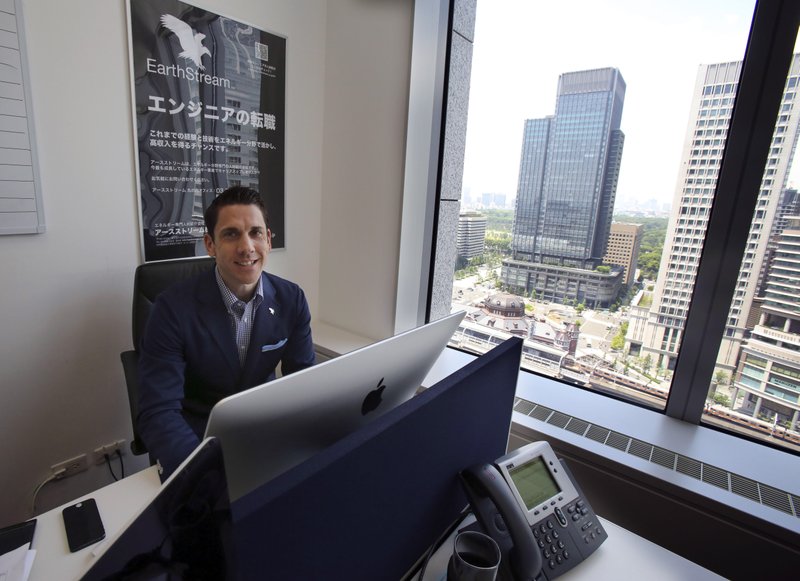TOKYO -- Stigma, pay cuts and risk of radiation exposure are among the reasons why 3,000 employees have left the utility at the center of Japan's 2011 nuclear disaster. Now there's an additional factor: better-paying jobs in the solar energy industry.
Engineers and other employees at Tokyo Electric Power Co. were once typical of Japan's corporate culture famous for prizing loyalty to a single company and lifetime employment with it. But the March 2011 tsunami that swamped the coastal Fukushima Daiichi plant, sending three reactors into meltdown, changed that for the utility.
Tokyo Electric was widely criticized for being inadequately prepared for a tsunami despite Japan's long history of being hit by giant waves and for its confused response to the disaster. The public turned hostile toward the nuclear industry, and reference to the company by its initials TEPCO, "or Toh-den" as the Japanese say it, became a dirty word.
Only 134 people quit Tokyo Electric the year before the disaster. The departures ballooned to 465 in 2011, an additional 712 in 2012 and 488 last year. Seventy percent of those leaving were younger than 40. When the company offered voluntary retirement for the first time earlier this year, some 1,151 workers applied for the 1,000 available redundancy packages.
The exodus, which has reduced staff members to about 35,700 people, adds to the challenges of the ongoing work at Fukushima Daiichi to contain the meltdowns, remove the fuel cores and safely decommission the reactors, which is expected to take decades.
The factors pushing workers out have piled up. The financial strain of the disaster has led to steep salary cuts, while ongoing problems at Fukushima, such as substantial leaks of irradiated water, have reinforced the image of a bumbling and irresponsible organization.
"No one is going to want to work there if they can help it, said Akihiro Yoshikawa, who quit Tokyo Electric in 2012.
After leaving, he started a campaign called "Appreciate Fukushima Workers," trying to counter what he calls the "giant social stigma" attached to working at the Fukushima plant.
Many of the workers, as residents of the area, were also victims of the nuclear disaster and lost their homes to no-go zones, adding to personal hardships. They also worry about the health effects of radiation on their children.
The Fukushima stigma is such that some employees hide the fact they work at the plant. They even worry they will be turned away at restaurants or that their children will be bullied at school after a government report documented dozens of cases of discrimination.
While Tokyo Electric Power is out of favor with the public, the skills and experience of its employees, who span the gamut of engineers, project managers, maintenance workers, and construction and financial professionals, are not.
Energy industry experience is in particular demand as the development of solar and other energy businesses is pushed along in Japan by generous government subsidies.
The government pays solar plants 31 cents per kilowatt-hour of energy. This so-called tariff for solar power varies by states and cities in the U.S., but they are as low as several cents. In Germany, it's about 15 cents.
Sean Travers, Japan president of EarthStream, a London-based recruitment company that specializes in energy jobs, has been scrambling to woo Tokyo Electric employees as foreign companies do more solar and wind energy business in Japan.
"TEPCO employees are very well-trained and have excellent knowledge of how the Japanese energy sector works, making them very attractive," he said.
Two top executives at U.S. solar companies doing business in Japan, First Solar director Karl Brutsaert and SunPower Japan director Takashi Sugihara, said they have interviewed former Tokyo Electric employees for possible posts.
Besides their experience, the ex-workers' knowledge of how the utility industry works and their contacts, with both private industry and government bureaucracy, are prized assets.
"It's about the human network, and the TEPCO employees have all the contacts," said Travers, who said he has recruited about 20 people from Tokyo Electric and is hoping to get more.
Business on 07/11/2014
